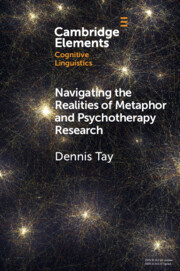Refine search
Actions for selected content:
1 results

Navigating the Realities of Metaphor and Psychotherapy Research
-
- Published online:
- 11 November 2022
- Print publication:
- 01 December 2022
-
- Element
- Export citation
